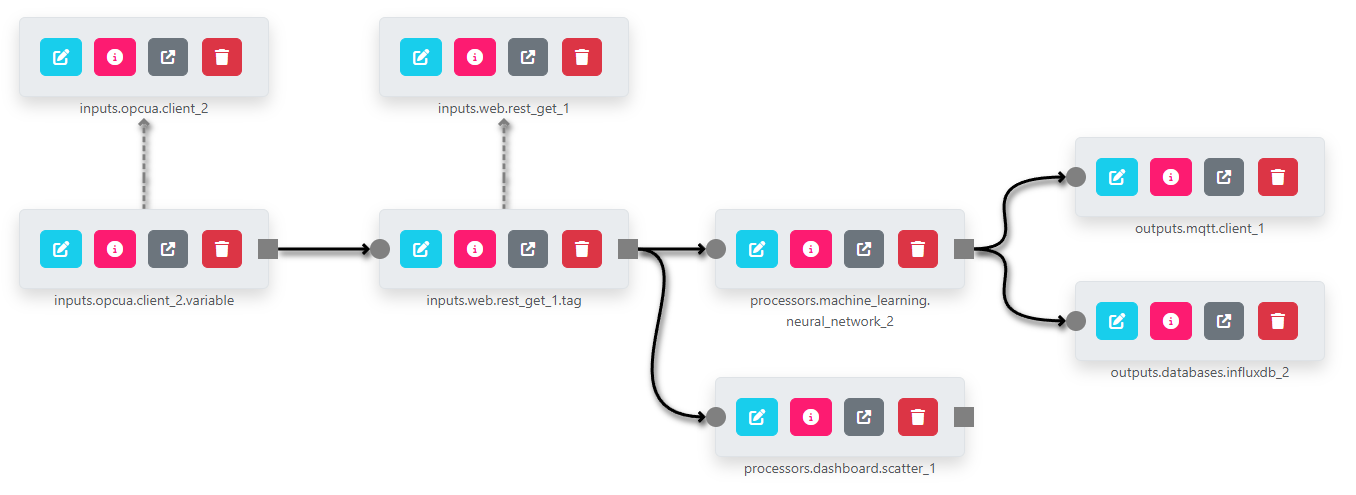Working Principle
Our Ideas, Your Solution
Collectu is an open source, Python-based, no-code application designed to simplify complex workflows and data processes. Its core concept revolves around the flow-based programming paradigm, which allows users to visually design and automate tasks without writing traditional code.
In Collectu, a flow - referred to as a configuration - is essentially a sequence of interconnected modules that work together to achieve specific goals. These modules can be easily reused, reconfigured, and customized to meet a wide range of user requirements, making the platform highly adaptable and user-friendly.
Modules
A module is a single python class implementing specific logic. In general, five different types of modules exist: input modules, variable modules, tag modules, processor modules, and output modules.
Configuration
A configuration is a specific composition of modules. You can easily create your personal data processing pipeline by combining different modules.
Collectu's intuitive drag-and-drop interface allows both technical and non-technical users to create sophisticated workflows, whether for data analysis, automation, or integration tasks. Its flexible architecture allows users to build complex systems by simply connecting modules in a logical sequence, optimizing productivity while maintaining the power and flexibility of Python under the hood.
Python
One of the Easiest and Most Popular Programming Languages.
To extend or adjust the processing logic, you can write simple Python code and focus on the pure logic. Error handling, the graphical user interface, data transfer, and other things are automatically handled by Collectu.
Parameters
Logic
The Benefits of a Modular No-Code Approach
Unlock Flexibility and Speed
Whether you're a business user looking to automate processes or a developer looking for a rapid prototyping tool, Collectu enables you to achieve your goals quickly and efficiently, with minimal technical overhead.

Improve Code Quality through Continuous Enhancement

Cut Maintenance Costs and Development Time by Reusing Modules

Accelerate Innovation and Create New Business Opportunities


